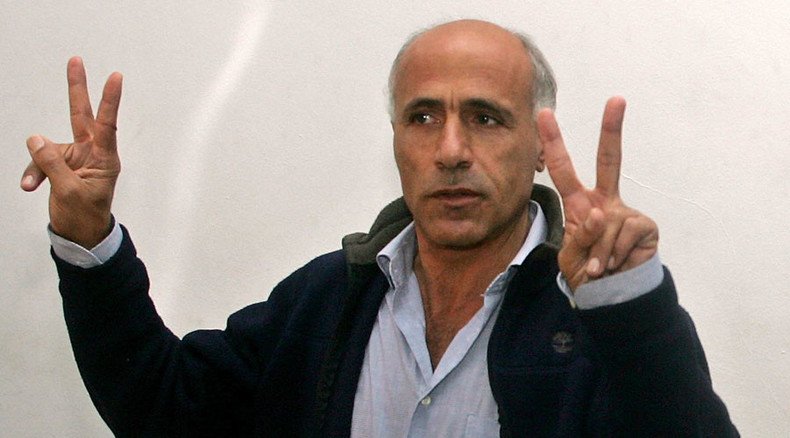‘Israel and US nuclear secrecy: Deterring Vanunu from revealing truth’

There’s been huge amount of secrecy in the US and Israel over the alleged Israeli nuclear program, so they’re trying to keep whistleblower Mordechai Vanunu from talking, fearing he could disclose classified data, says Grant Smith from the Institute of Research of Middle Eastern Policy.
Nuclear whistleblower, Mordechai Vanunu, has been placed under house arrest by Israeli police in connection with a TV interview. Vanunu was jailed for 18 years for exposing Israel's nuclear weapons program to the British media.
RT: It’s ten years since he was released; Vanunu is still under constant government pressure and lives in fear of arrest. Why is that?
Grant Smith: Well, it’s because Vanunu did something nobody else was ever able to do – he was able to take photos from inside Dimona for the London Sunday Times and even more surprising they published them. So he’s been considered to be a key witness to the fact that there is a nuclear weapons program – research and development going on. He was also there right at the point where according to Department of Defense documents released recently – they were beginning hydrogen bomb research.
READ MORE: Israel nuclear whistleblower Vanunu placed under house arrest over TV interview
RT: He's not allowed to leave the country, because the government says he could still reveal more secrets. Is that legally acceptable?
GS: As you probably know, all journalists there are subjects to military censorship run by the IDF (Israeli Defense Forces). As a former government’s employee, he probably signed some classification contracts. I hasten to add that it wouldn’t be that much different if there were a former US National Laboratory employee trying to do the same thing under WPN-136, which is a classification bulletin. Curiously enough about Israel’s nuclear program, people like James Doyle, who has talked about the Israeli program, has also run into trouble and been fired in the US. So I’m not very surprised given the huge amount of secrecy both in the US and Israel about their program that they are trying to hang on to him and keeping him from going outside and talking, which is what he wants to do.
READ MORE: Israel gags famous nuclear whistleblower invited to speak at human rights conference
RT: Israel neither confirms nor denies the existence of nuclear weapons in the country. But it's an open secret, so why continue to deny it?
GS: There are various reasons, but one of the most important is that since the mid-70’s the US cannot give foreign aid, under the Symington and Glenn Amendments to the 1961 Foreign Aid Act, to countries that have clandestine nuclear weapons programs that aren’t signatories to the Nuclear Non-Proliferation Treaty. If they don’t want to lose their $3.5 billion worth of aid plus unknown amounts of intelligence aid, they have to pretend that they don’t know whether they have a program or not. And the US seems very willing to continue with their ruse, as well. Strategically it doesn’t make any sense, because if they wanted to deter their enemies, they should, according to all of the protocols of Mutual Assured Destruction and whatnot, be declaring that they have nuclear weapons - that is deterrence.
LISTEN MORE:
The statements, views and opinions expressed in this column are solely those of the author and do not necessarily represent those of RT.












